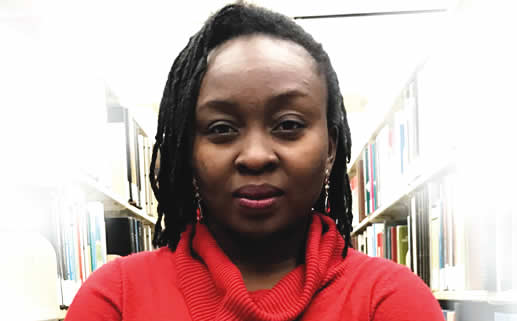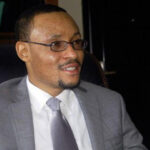
We now live in a world where private communication can easily go viral, yet some corporate organisations have not yet learnt to word their communication prudently. Last week, Polaris Bank became a test case when an internal memo, issued by a supervising officer, asked some staff members not to leave their duty posts to observe Friday prayers. The memo was leaked to the public, and it caused some uproar. While the issue trended, some fundamentalists expectedly hyperventilated over the presumed persecution and took it up as a matter of schadenfreude. Rather than clarifying, the bank management’s response merely sought to appease the baying mob by throwing the supervisor under the bus. What stood out from the whole exchange was Nigeria’s problem of standards. Our penchant for doing things haphazardly is one reason we are not yet ready to be a developed nation. Without standards, there can be neither expectations nor concomitant accountability.
If there is any statement that describes Nigeria to a T, it is from Judges 21:25, which read, ‘In those days, there was no king in Israel. Everyone acted as they pleased.’ Nigeria might not be missing a king, but we certainly lack an organised system of calibrating values as the standards by which we assess situations shift with every wind of opinion. Unfortunately, if a society cannot set a baseline set of standards and expectations, it means different groups within its territory can claim different habitations of reality and make moral demands based on their privately generated values. A society that refuses to define values and set expectations cannot also develop a culture of accountability. Like ancient Israelites, people will act as it suits them.
The Polaris issue piqued my interest because it followed another major event: the national awards. Monday last week was all agog with the news of Nigerians being garlanded. That event also demonstrated our collective inability to do anything according to standards. Some days ago, a columnist, Chidi Odinkalu, published an essay chronicling the attitude of ‘anyhowness’ that has besotted the national awards ceremonies for many years. Reading through the article, one wonders, given these existing criticisms of the lapses of previous award ceremonies, why has the Federal Government not thought it essential to establish a reputation for the national awards? Instead, with each successive ceremony, they lowered the bar of what constitutes an honour system in Nigeria. The cynic in me says their persistent bastardisation of honourability through that ceremony is deliberate. By using legitimate means to invade the meaning of what we characterise as “honour,” it will be nearly impossible to hold them accountable for dishonourable conduct.
One of the shortcomings of last week’s event was the number of people supposedly being honoured: 450 people at a go! Who does that? What kind of honour is possible for anyone when the ceremony looks like an open market? It is virtually impossible to generate a meaningful list of 450 national honourees. A President should probably not give out more than 12 national honours within a tenure anyway. National honours should be so rare and competitive that by the time anyone’s name gets called up for it, they should have over-deservedly embodied the values with which the nation defines itself.
Meanwhile, the list of names of those to be “honoured” also turned out to be shoddily compiled. Some people who had previously received the honour were re-listed, a sloppiness that is quite telling. It means there is no institutional memory, and those who put the list together did not think through the names diligently. It also turned out that some of the honourees’ designations and even their respective states of origin had been improperly recorded. If you could not phone the people you want to honour and confirm details about them before publishing their names, are you really honouring them? Later, we learnt that Chimamanda Adichie turned down her own award, a rejection that reprises renowned author Chinua Achebe who did the same in 2004 and 2011. But it is 2022 and Nigeria still announces people’s names for an award without first privately conferring with them to ascertain if they would be interested in taking it up or not? Well, how can you do such due diligence when you take on the impossible logistics of medalling 450 people at a go?
While a bunch of people on that award roll call quite deserved it, many names on that list appeared to be smuggled in by politicians who needed a national honour to validate their non-achievements. Some of them were even serving public officials whose tenure should be awarded an F! What justifies the appearance of the Minister of Works and Housing, Babatunde Fashola, on that list in a time when many Nigerians across many states are being flooded out of their homes and many have either died or become displaced? What outstanding achievements did he record in the sectors of housing, power, and works where he served since 2015 that he deserved a national award for? As if that was not insensitive enough, they also handed one to the education minister, Adamu Adamu. Out of the seven years that he has spent in office, universities have been shut down for almost two years. Nigeria has more children out of school than there have ever been in our history. Why will a man under whose watch all of that happened deserve a national honour?
When standards of behaviour are hardly defined, the culture of ‘anyhowness’ will percolate into all levels of society. From a government that slaps all kinds of characters with national honours to the people who want to do as they like in their workplaces, it is always the same story of a vaguely defined moral system. We see it happen when government agencies overreach themselves or usurp the responsibility of each other. The lack of reasonable standards explains why a politician will spend 23 years robbing people blind and still expect people to queue behind him and vote for him as President. People who have no expectation of what ought to be delivered to them will take nothing when it is offered. The same reason for poor standards in Nigeria explains why public officials merge their personalities with the offices they occupy. When some get on a public forum like Twitter, they turn into an agbero and causally throw the gravitas of their office into a pigsty just so they can deliver the wickedest burn to a troll. How does a nation progress when everyone acts on their own whims, thinking they are too good to conform to a standard of conduct?
Finally, and to return to Polaris Bank, I must note that the issue here is not simply whether it is right to pray at work or not. Most modern workplaces have come to recognise that their staff members have certain obligations of religion or to their family, and should be allowed to pursue them within reasonable limits. There is something they call ‘break time.’ It is a period carved into a work schedule during which the employees are allowed to pursue their own devices. It should not matter whether a bank staff member wants to take some time off either to go pray or to smoke a cigarette; it is their time to spend. When you hire people to a place like a bank, they should not have to observe a uniform schedule. If some people want to go for prayers, it should be possible to pre-arrange the staff timetable so that some can use their break time. It should not take a lot of imagination for the management of the company to balance the staff members who will go for prayers with others who do not need accommodation. But, of course, it is Nigeria. We love to make simple things look impossible.





